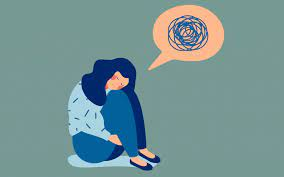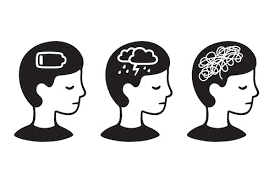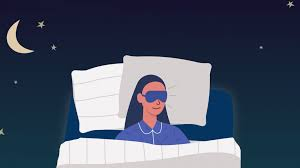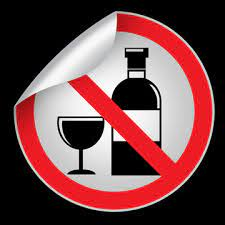What is mental health?
Our emotional, psychological, and social well-being are all parts of our mental health. It influences our thoughts, emotions, and behaviors. Additionally, it influences how we respond to stress, interact with others, and make decisions. From childhood and adolescence through adulthood, mental health is extremely crucial at every stage of life.
Mental health problems and related issues can affect our thinking, mood and our behavior. This could very well hamper our day to day life. Now you’re thinking, “How do I know if I’m going through mental health issues?” The answer, however is not very simple. Everyday we move towards a world where mental health is being recognized. Even then, often times, people spend a lot of time going through these issues without ever realizing it. This needs to change. There are ways to know if you going through mental health problems. Call them “warning signs”, if you may. Watch out for these early signs:
- Eating or sleeping either too much or too little
- Stepping away from usual people and activities
- Having no energy even if you just woke up
- Feeling numb and like nothing in the world matters
- Experiencing severe mood swings that cause problems in relationships

Why is Mental Health so important?
Stabilizing constructive habits, emotions, and thoughts requires maintaining good mental health and managing any mental health disorders. Focusing on mental health care can boost productivity, improve our self-perception, and strengthen bonds with others.
“Our mental health is something that impacts our eating and sleeping habits and has a lot to do with our physical health as well. It is important to address our mental health needs, or oftentimes we will feel the impact of it in other areas of our health as well.”
- Bisma Anwar, LMHC
Taking care of our mental health not only makes it easier for us to operate on a daily basis, but it can also help us combat or at least regulate some physical health issues that are closely related to mental health issues. For instance, since stress and heart disease are linked, reducing stress may benefit heart disease.

How can I improve my mental health?
There are so many things an individual can do to improve their mental health. Here are some of them.
- Good Sleep
Sleep is important for more than just physical wellness. In terms of mental health, it is also crucial. According to a study in 2021, 273,695 American individuals' data were included in the Trusted Source study. Researchers discovered that individuals with an average sleep duration of 6 hours or less per night were around 2.5 times more likely to report frequent mental distress than individuals with an average sleep duration of more than 6 hours.
Additionally, the quality of your sleep is important because sleep disruptions can worsen the symptoms of mental illness. Be aware that issues with mental health can also cause sleep problems. Therefore, altering your sleeping environment and bedtime pattern might not have a long-term impact.

- Positive and Healthy Relationships
Since humans are social beings, having a strong social network can benefit your mental health in a number of ways. Friendships will ease feelings of loneliness, provide emotional support and add meaning to your life as well.
Keep in touch with friends, send a meme or a quick text if you have to. Meet up for morning walks and breakfast dates. Trust me, people around you really can help you, if only you let them.
- Physical Activity
Exercising regularly offers a plethora of benefits. It helps in relieving stress, improving your mood, and helps in managing symptoms of anxiety disorders and depression.
Everybody's definition of movement is different, and it need not require visiting the gym unless you really want to. Instead, choose physical activities that are optimal for your body, health, and preferences to make movement joyful for you. Involving close ones may also help in a more enjoyable experience.

- Cut back on social media
Constantly reading about other people's lives and looking at their activities might encourage comparisons between oneself and others and feelings of low self-worth, which heightens anxiety and depressive symptoms.
Try to keep your phone in a drawer or outside your bedroom while sleeping. You can find alternatives, more meaningful activities. Reading a book before sleeping is an excellent way to fall asleep faster and without the side effects of social media.

- Diet
Your mental health might be impacted by particular foods. Try incorporating more foods high in mood-enhancing nutrients into your diet to support enhanced mental wellness. Some of the options to try are whole grains, bananas, berries, beans etc.
The benefits of drinking water all day long are also possible. When you're dehydrated, you're depriving your body and brain of the nutrients they require to survive and function more effectively. DRINK WATER NOW!
Also, take it easy on alcohol, caffeine, refined carbs may also worsen symptoms of depression and anxiety.
